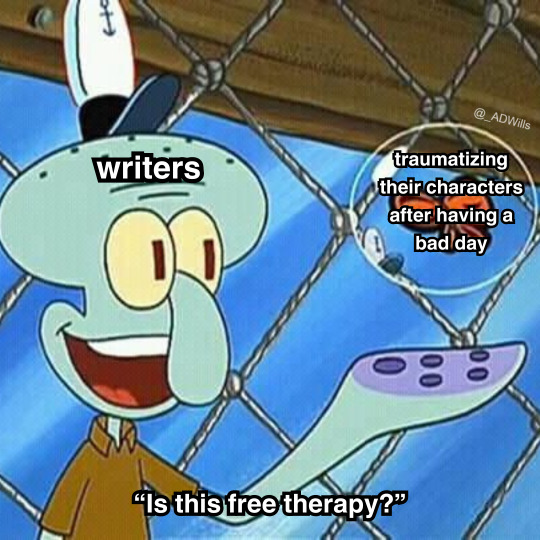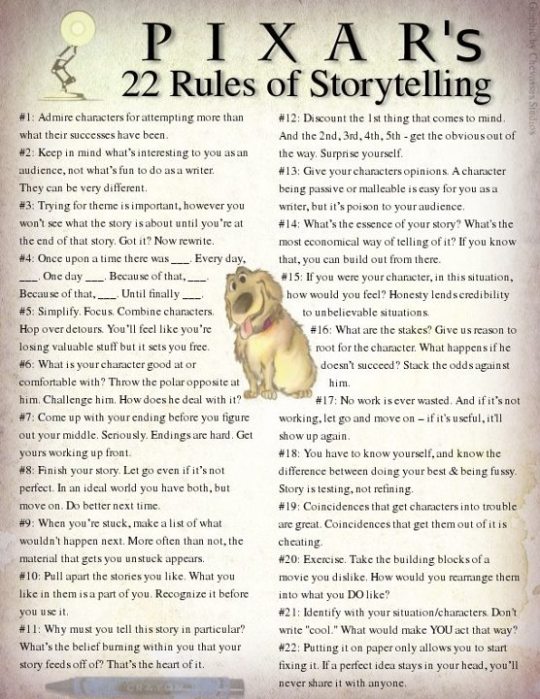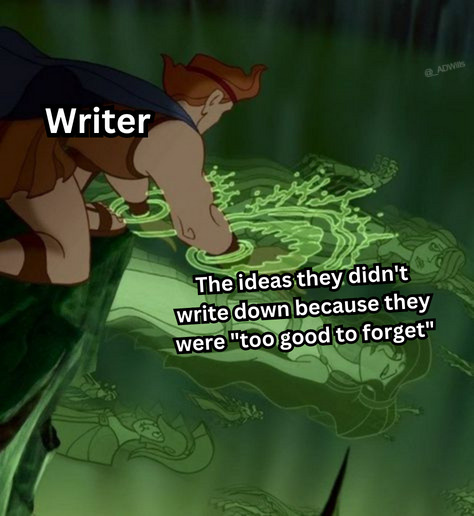A place for my own personal story I’ve been working on for a while.
Don't wanna be here? Send us removal request.
Text
IT’S NOT ‘PEEKED’ MY INTEREST
OR ‘PEAKED’
BUT PIQUED
‘PIQUED MY INTEREST’
THIS HAS BEEN A CAPSLOCK PSA
701K notes
·
View notes
Text
Not every story is about seeing yourself in it. Sometimes it’s about learning to see other people too.
187K notes
·
View notes
Text
OKAY TUMBLR. IT'S TIME TO SETTLE THIS ONCE AND FOR ALL.
Reblog this if you pronounce “.gif” as “GIF.”
NOT JIF,
GIF.
And here is the link for the opposite.
WE SHALL SEE WHICH ONE PREVAILS.
629K notes
·
View notes
Text
hey so we put your morally grey character in a fandom. yeah half the fanbase makes them into a perfect angel who did nothing wrong and the other half depicts them as a cartoonishly evil villain who hurts people for fun. no we dont know how to explain that people can do bad things for good reasons or good things for bad reasons. sorry man
62K notes
·
View notes
Text
Anybody else got that Evergiven sized writers block
201K notes
·
View notes
Text
Poison list
While it's important to approach writing with creativity and imagination, it's crucial to prioritize responsible and ethical storytelling. That being said, if you're looking for information on poisons for the purpose of writing fiction, it's essential to handle the subject matter with care and accuracy. Here is a list of some common poisons that you can use in your stories:
Hemlock: Hemlock is a highly poisonous plant that has been used as a poison in various works of literature. It can cause paralysis and respiratory failure.
Arsenic: Arsenic is a toxic element that has been historically used as a poison. It can be lethal in high doses and can cause symptoms such as vomiting, abdominal pain, and organ failure.
Cyanide: Cyanide is a fast-acting poison that affects the body's ability to use oxygen. It can cause rapid loss of consciousness and cardiac arrest.
Nightshade: Nightshade plants, such as Belladonna or Deadly Nightshade, contain toxic compounds that can cause hallucinations, respiratory distress, blurred vision, dizziness, an increased heart rate, and even death when ingested.
Ricin: Ricin is a potent poison derived from the castor bean plant. It can cause organ failure and has been used as a plot device in various fictional works.
Strychnine: Strychnine is a highly toxic alkaloid that affects the nervous system, leading to muscle spasms, convulsions, and respiratory failure.
Snake Venom: Various snake venoms can be used in fiction as deadly poisons. Different snake species have different types of venom, each with its own effects on the body.
Digitalis: Digitalis, derived from the foxglove plant, contains cardiac glycosides. It has been historically used to treat heart conditions, but in high doses, it can be toxic. Overdosing on digitalis can cause irregular heart rhythms, nausea, vomiting, and visual disturbances.
Lead: Lead poisoning, often resulting from the ingestion or inhalation of lead-based substances, has been a concern throughout history. Lead is a heavy metal that can affect the nervous system, leading to symptoms such as abdominal pain, cognitive impairment, anemia, and developmental issues, particularly in children.
Mercury: Mercury is a toxic heavy metal that has been used in various forms throughout history. Ingesting or inhaling mercury vapors can lead to mercury poisoning, causing symptoms like neurological impairment, kidney damage, respiratory issues, and gastrointestinal problems.
Aconite: Also known as Wolfsbane or Monkshood, aconite is a highly toxic plant. Its roots and leaves contain aconitine alkaloids, which can affect the heart and nervous system. Ingesting aconite can lead to symptoms like numbness, tingling, paralysis, cardiac arrhythmias, and respiratory failure.
Thallium: Thallium is a toxic heavy metal that can cause severe poisoning. It has been used as a poison due to its tastelessness and ability to mimic other substances. Thallium poisoning can lead to symptoms like hair loss, neurological issues, gastrointestinal disturbances, and damage to the kidneys and liver.
When incorporating poisons into your writing, it is essential to research and accurately portray the effects and symptoms associated with them. Additionally, be mindful of the potential impact your writing may have on readers and the importance of providing appropriate context and warnings if necessary.
If you want to read more posts about writing, please click here and give me a follow!

24K notes
·
View notes
Text
Dialogue tips that actually work:
You are not writing a movie (ignore this if you are). The reader doesn't need to know every word the characters say for the duration of the story. Less is more.
Dialogue can happen within the prose. "And they awkwardky discussed the weather for five minutes" is way better than actually writing five pages of dialogue about the weather.
Balance your dialogues. Surprise yourself with a monosyllabic answe to a dialogue that's ten sentences long. Don't be afraid of letting your character use half a page for a reply or nothing at all!
Don't write accents phonetically, use slang and colloquialisms if needed.
Comma before "said" and no caps after "!?" unless it's an action tag. Study dialogue punctuation.
Learn the difference between action tags and dialogue tags. Then, use them interchangeably (or none at all).
Don't be afraid to use said. Use said if characters are just saying things, use another word if not. Simple. There's no need to use fancy synonyms unless absolutely necessary.
Not everyone talks the same way so it makes sense for your characters to use certain words more often than others. Think of someone who says "like" to start every sentence or someone who talks really slow. Be creative.
Use prose to slow down the pace during a conversation.
Skip prose to speed up the pace during a conversation.
19K notes
·
View notes
Text
I died but I came back exactly the same. You though, I came back and you were wrong. Did the fact of my dying really damage you that much? Was bringing me back worth what it cost you? Would it have been better to just leave me?
70K notes
·
View notes
Text
It was number 5, but I still think that’s too high.
5K notes
·
View notes
Text
fantasy is so fun until you have to name your countries and make a map someone please end my misery
10K notes
·
View notes
Text
If your plot feels flat, STUDY it! Your story might be lacking...
Stakes - What would happen if the protagonist failed? Would it really be such a bad thing if it happened?
Thematic relevance - Do the events of the story speak to a greater emotional or moral message? Is the conflict resolved in a way that befits the theme?
Urgency - How much time does the protagonist have to complete their goal? Are there multiple factors complicating the situation?
Drive - What motivates the protagonist? Are they an active player in the story, or are they repeatedly getting pushed around by external forces? Could you swap them out for a different character with no impact on the plot? On the flip side, do the other characters have sensible motivations of their own?
Yield - Is there foreshadowing? Do the protagonist's choices have unforeseen consequences down the road? Do they use knowledge or clues from the beginning, to help them in the end? Do they learn things about the other characters that weren't immediately obvious?
93K notes
·
View notes
Text
When I picture Rowen and Ikarus’ relationship, I picture all of my favorite tropes and mash them into one. There’s childhood friends, a bit of enemies to lovers, and a tinge of hero x villian.
It’s “I’d let the world burn to keep you safe” and “til’ death do us part.”
0 notes




